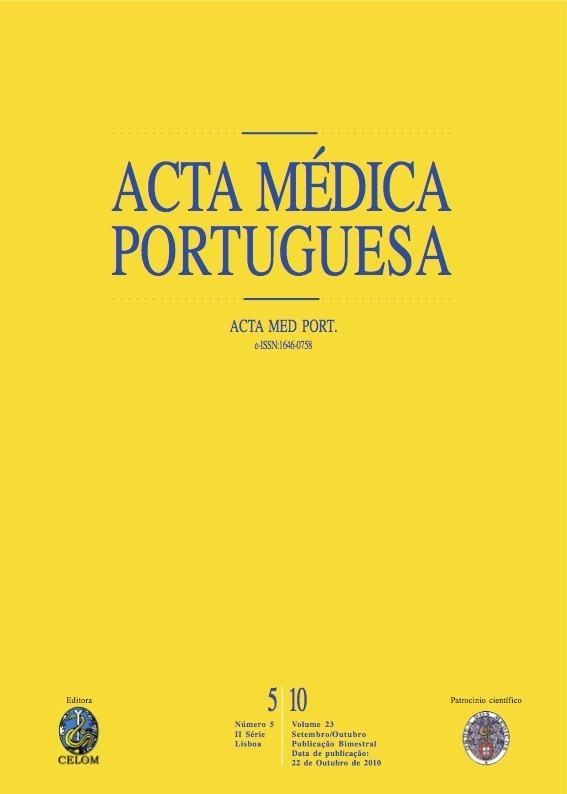Epidemiology of leishmaniases in Portugal.
DOI:
https://doi.org/10.20344/amp.715Abstract
Leishmaniases, caused by the intracellular protozoan Leishmania infantum, are an endemic zoonosis in the Mediterranean basin. Dogs are considered the major host for these parasites, and the main reservoir for human visceral infection. Parasites are transmitted by the bite of phlebotomine sand flies, being Phlebotomus perniciosus and P. ariasi the proven vectors in Portugal. The global climate changes associated with a higher density and activity of sand flies during a larger period might enhance the number of days favorable for transmission of parasites to humans and animals with a concomitant increase of incidence. In our country, as in other countries in the south of Europe, visceral leishmaniasis was initially a pediatric disease but in the last years the number of cases in children has decreased with an increase of infection in adults, normally associated with HIV/AIDS. Between 2000 and 2009, 173 new cases of human visceral leishmaniasis (66 in immunocompetent adults and children and 107 in immunocompromised patients) were observed in the Leishmaniasis Unit - IHMT. After the introduction of antiretroviral therapy HAART for HIV, the number of co-infected cases reported from southern Europe has fallen dramatically in all countries except in Portugal. In this country the number of coinfection new cases did not decrease - neither the frequent relapses. Despite cutaneous leishmaniasis being barely known in Portugal, it should not be considered as a rare disease since about ten new cases per year are diagnosed. In addition, canine leishmaniasis has increased with a prevalence rate up to 20% found in endemic foci. In 2008 the Portuguese National Leishmaniasis Observatory was created. The development of national and international epidemiological networks will help the knowledge of leishmaniasis and will promote opportunities to advise health authorities about the most effective measures for prevention and control of this parasitosis. These networking initiatives and, importantly their integration, will, hopefully, contribute towards a significant reduction of the incidence/prevalence of human and canine visceral leishmaniasis.Downloads
Downloads
How to Cite
Issue
Section
License
All the articles published in the AMP are open access and comply with the requirements of funding agencies or academic institutions. The AMP is governed by the terms of the Creative Commons ‘Attribution – Non-Commercial Use - (CC-BY-NC)’ license, regarding the use by third parties.
It is the author’s responsibility to obtain approval for the reproduction of figures, tables, etc. from other publications.
Upon acceptance of an article for publication, the authors will be asked to complete the ICMJE “Copyright Liability and Copyright Sharing Statement “(http://www.actamedicaportuguesa.com/info/AMP-NormasPublicacao.pdf) and the “Declaration of Potential Conflicts of Interest” (http:// www.icmje.org/conflicts-of-interest). An e-mail will be sent to the corresponding author to acknowledge receipt of the manuscript.
After publication, the authors are authorised to make their articles available in repositories of their institutions of origin, as long as they always mention where they were published and according to the Creative Commons license.









